Sgt. Janus, Spirit-Breaker Carries on the Tradition
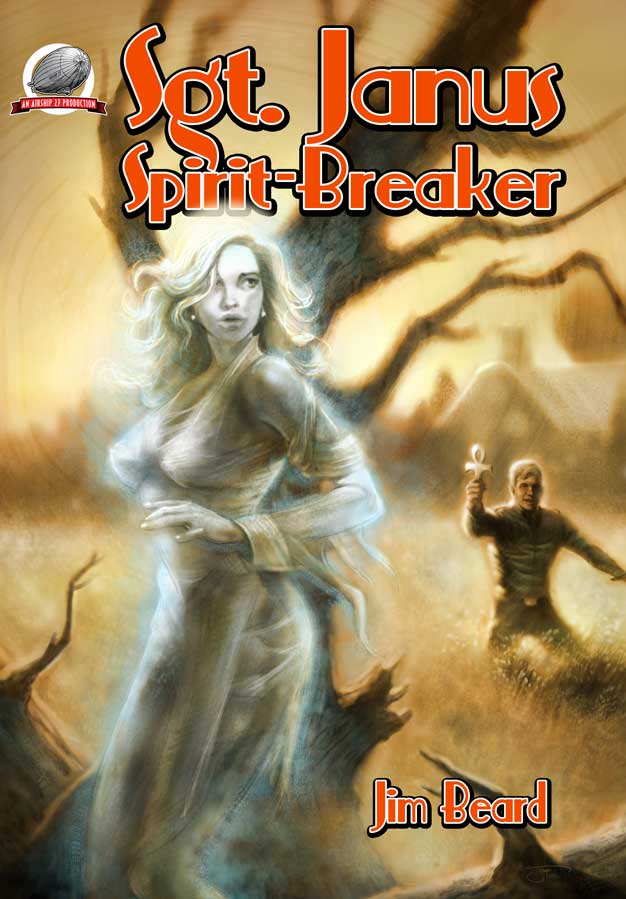
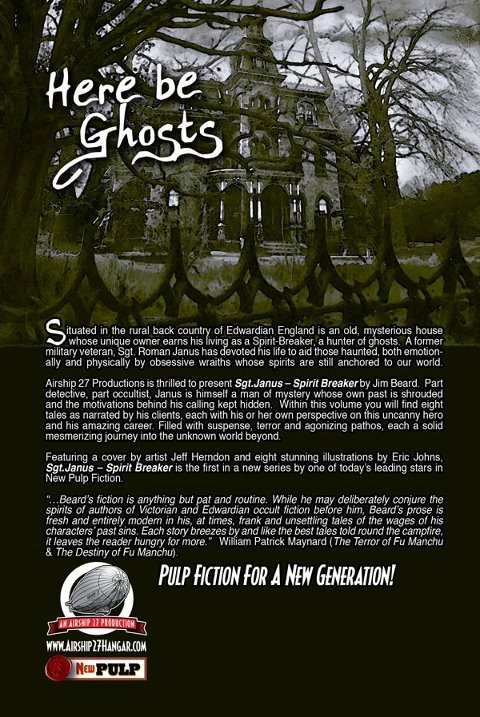 There is a longstanding tradition of occult detectives. Sheridan Le Fanu is generally considered the originator of the sub-genre with his chronicles of Dr. Martin Hesselius. Together with William Hodgson Hope’s Carnacki, Seabury Quinn’s Jules de Grandin, and Manly Wade Wellman’s John Thunstone, Dr. Hesselius’ cases are generally regarded as the finest examples of a continuing occult detective hero in the supernatural realm of mystery fiction.
There is a longstanding tradition of occult detectives. Sheridan Le Fanu is generally considered the originator of the sub-genre with his chronicles of Dr. Martin Hesselius. Together with William Hodgson Hope’s Carnacki, Seabury Quinn’s Jules de Grandin, and Manly Wade Wellman’s John Thunstone, Dr. Hesselius’ cases are generally regarded as the finest examples of a continuing occult detective hero in the supernatural realm of mystery fiction.
Willie Meikle, Jim Butcher, and Simon R. Green are among the outstanding contemporary practitioners of the form. Now one may add Jim Beard and his creation of Sgt. Roman Janus to the list of occult detectives whose exploits are worthy of a larger audience. Beard is among the select group whose work is exclusively aimed at the niche market for New Pulp. Sgt. Janus, both as an original creation and as a literary work itself, raises the bar for Beard’s fellow authors to match the same exacting standard achieved here.
Janus, in Roman mythology, is the god of the gateway to the past and the future. So it is with Sgt. Janus, a character who provides the essential link between the astral plane and our own reality. The eight stories in this collection depict the character through the eyes of his clients. The device works brilliantly in giving the reader differing perspectives on the detective and his methods.

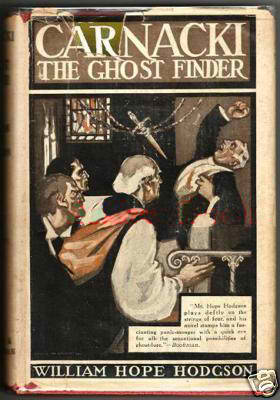 Consequently, one wonders why the conceit is not more commonly employed in genre fiction. One suspects that as appreciation of Beard’s talent grows, the device may become more common in certain quarters at least. As a testament to Beard’s plotting and characterization, I was unable to rank the stories in the collection as I found them to be uniformly excellent.
Consequently, one wonders why the conceit is not more commonly employed in genre fiction. One suspects that as appreciation of Beard’s talent grows, the device may become more common in certain quarters at least. As a testament to Beard’s plotting and characterization, I was unable to rank the stories in the collection as I found them to be uniformly excellent.
The book’s publisher, Airship 27 has deservedly made a name for itself among pulp-specialty houses for not only the writing talent they employ, but also the design of their books which is rarely short of stunning. It is no exaggeration to say that their titles place consistently among the best-looking on the market, with cover and interior artwork of a surprisingly high caliber. Given the diversity of narrative viewpoints in the collection, it is perhaps only appropriate that artist Eric Johns delivered eight unique illustrations to grace each of the stories.
Johns’ stylistic range is surprisingly broad. The illustration for the first story, “The Portobello Cetacean,” could be a Lynd Ward woodcut in the vividness of his depiction of the ethereal struggle between occult detective and spirit. While a Manga-style illustration is entirely appropriate for “This Unbroken Lock.” The lifelike quality of the highly-charged erotic illustration for “Lydia’s Lover” is likewise a perfect match. Johns employs an exaggerated Fumetti-style to depict the disturbed sexuality of “Sculpted Velvet” and one cannot imagine a more evocative choice.
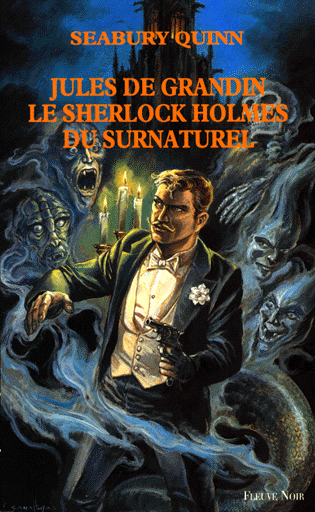
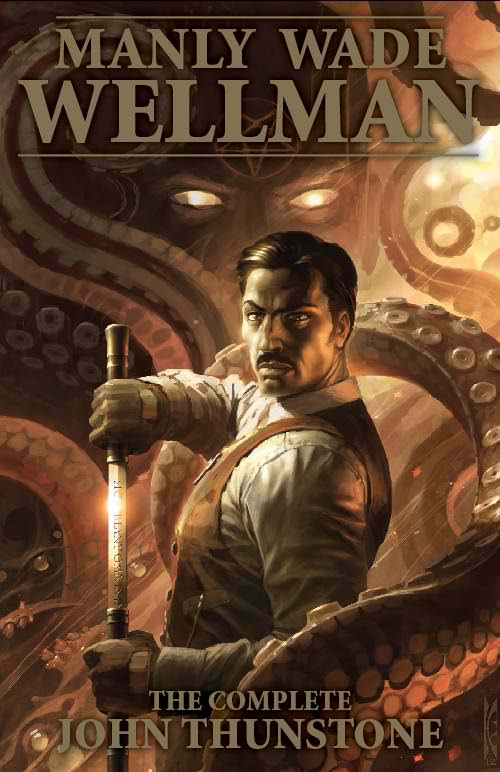 As the description of the artwork suggests, Beard’s fiction is anything but pat and routine. While he may deliberately conjure the spirits of authors of Victorian and Edwardian occult fiction before him, Beard’s prose is fresh and entirely modern in his, at times, frank and unsettling tales of the wages of his characters’ past sins. Each story breezes by and like the best tales told round the campfire, it leaves the reader hungry for more.
As the description of the artwork suggests, Beard’s fiction is anything but pat and routine. While he may deliberately conjure the spirits of authors of Victorian and Edwardian occult fiction before him, Beard’s prose is fresh and entirely modern in his, at times, frank and unsettling tales of the wages of his characters’ past sins. Each story breezes by and like the best tales told round the campfire, it leaves the reader hungry for more.
Not only does the changing narrative voice keep each story fresh and exciting, so does Beard’s decision to make Janus House, the detective’s residence, an integral part of the formula. As Mervyn Peake ably demonstrated with Gormenghast and contemporary masters such as Neil Gaiman have proven to good effect time and again, treating a mysterious house as a character only adds to the narrator and the reader’s sense of disorientation. Where this genre is concerned, such a decision only serves to heighten the mystery and compel the reader and narrator to move forward with the story.
It is only fitting that by the time one reaches the shocking conclusion of the final tale, “The Unfinished Landscape,” Beard’s occult detective stays true to his name and passes through a portal few before him have dared to venture. As the entirely appropriate title of the final story suggests, the door is left open for more adventures from this timeless original in the classic tradition. I for one will be eager to let Roman Janus (and, by extension, Jim Beard) be my guide. Sgt. Janus, Spirit-Breaker comes highly recommended.
William Patrick Maynard was authorized to continue Sax Rohmer’s Fu Manchu thrillers beginning with The Terror of Fu Manchu (2009; Black Coat Press). A sequel, The Destiny of Fu Manchu was published earlier this year by Black Coat Press. Next up is a collection of short stories featuring an Edwardian detective, The Occult Case Book of Shankar Hardwicke and a hardboiled detective novel, Lawhead. To see additional articles by William, visit his blog at SetiSays.blogspot.com
From the old school, don’t forget E & H Heron’s Flaxman Low. I think those are better than the Carnacki tales.
I’ve just read as much as I was allowed of the first story of Spirit-Breaker over at Amazon. The book is a bit pricey for 160 pages, but, my principles of frugality be damned, I think I’ve got to get a copy of this. I recall I may have just enough coins at the back of my desk drawer.
[…] Sgt-janus-spirit-breaker-carries-on-the-tradition […]
[…] the TV-inspired anthology Tales from the Hanging Monkey, Jim Beard’s occult detective Sgt. Janus, Spirit-Breaker, pulp adventurer Ravenwood: Stepson of Mystery, The Moon Man – whom David C Smith describes […]